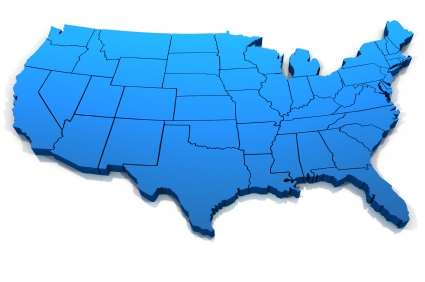 Although federal taxes are not dependent upon where you live in the United States, there are some drastic differences between how states collect taxes from their citizens – considering the different rates they tax for income, property, luxury goods, and even common necessities such as food and clothing. If you have flexibility about where you live, perhaps it is worth it to move to a state with lower taxation rates in categories that apply to you and your family.
Although federal taxes are not dependent upon where you live in the United States, there are some drastic differences between how states collect taxes from their citizens – considering the different rates they tax for income, property, luxury goods, and even common necessities such as food and clothing. If you have flexibility about where you live, perhaps it is worth it to move to a state with lower taxation rates in categories that apply to you and your family.
Sales Tax: States With Inexpensive Rates For Everyday Purchases
The states Oregon, New Hampshire, Delaware, and Montana levy no state or local tax on the sale of goods, including everything from groceries and everyday needs to alcohol, cigarettes, and luxury products. Of course, these low sales tax rates apply not only to state residents, but tourists and visitors too – even the ones who hop the border just to score the better deal on their purchases. However, beware of exceptions: for example, New Hampshire has no sales tax on alcohol or many other luxury goods, but tobacco products are an exception, with a tax rate upwards of $1.73 per pack.
Property Tax: Dependent Upon Location And Luxury Levels
The top five states with the lowest property taxes include Louisiana (.18%), Alabama (.33%), Delaware (.43%), and West Virginia (.49%). Who would have thought, however, that one of the most luxurious vacation destinations on earth – Hawaii – would be a state that comes in at number two on the low-property-tax list? At a rate of .26%, many Americans who cannot commit to living on Hawaii’s exotic islands year-round have purchased vacation properties there and enjoy relatively low tax rates as well, and are able to afford to live there part-time as a result of the low rates of sales and income tax combined.
Income Tax: The Most Complicated And Variable Portion Of State Taxation
Income rates are hard to compare, especially when they are assessed using different methodologies – some states choose to tax at a flat rate, while other states charge based upon a scale related to income levels, and still other states use a combination of those two methods and include additional fees for each income bracket. To mention a few examples, consider Indiana and Illinois – the income tax rate is a relatively low flat tax at 3.4% and 5% respectively, so individuals who make extremely high salaries in the region will pay less in taxes than in other states that adjust with higher rates that penalize top earners. Michigan and Missouri also come in with flat tax rates under 5%. However, the best states for income taxation are the ones that do not charge income tax at all – including Nevada and New Hampshire, and their low levels of inheritance tax, estate tax, and sales tax also put them at the top of our list. Wyoming and South Dakota also have low income tax rates under 4%, yet they levy taxes that are higher in terms of inheritance and sales.
Problematic Comparisons: Issues In Analyzing Taxation Rates Across State Borders
A rigorous analysis of these differences is far more complicated than simply comparing the rates each state levies on goods, properties, or income dollars. One must take into account standards of living and mean salaries of the regions at hand. It is well known that, as a result of decades of cultural and economic differences, the standards of living on the coasts of the United States are far higher than in the Southern and Midwestern regions. Even though taxation rates in these regions are lower, they are also places in which finding high-paying, high-quality jobs is often extremely difficult, and where workers who do the same work as their counterparts in other regions are paid often at least $20k less annually.
Although the system is not strategically designed with checks and balances, many of the benefits of lower taxation come with personal and professional costs of moving to those regions. For example, Louisiana, indubitably one of the best states to live in when it comes to taxes, has faced tough economic times from the worldwide financial crisis, which have been become exponentially greater as a result of natural disasters that have ravaged the region. Each state has its own methods for calculating tax rates. For more information, contact the tax bureaus within the states that you are interested in living and working in to find out how the tax schedules would apply to your current salary as well as particular interests in terms of luxury purchases and property ownership.
This guest post was written by Audrey. She is writing the tax blog of Wallace & Associates CPA, a Malibu certified personal accountant (CPA) boutique agency.